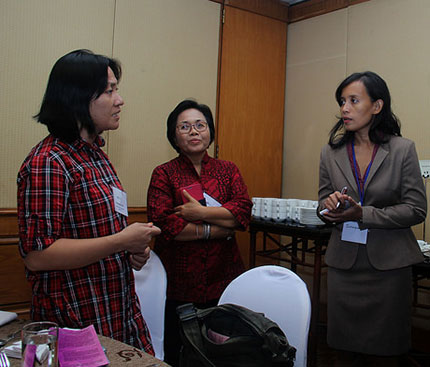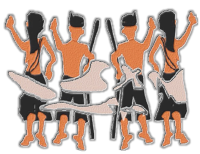
 The World Justice Project has awarded seed grants to five pilot programs led by local organizations in Indonesia. The programs address key challenges in adherence to the rule of law in Indonesia, including judicial corruption, access to government ID, women’s inheritance and property rights, forest-related land conflicts, and paralegal assistance in remote indigenous communities.
The World Justice Project has awarded seed grants to five pilot programs led by local organizations in Indonesia. The programs address key challenges in adherence to the rule of law in Indonesia, including judicial corruption, access to government ID, women’s inheritance and property rights, forest-related land conflicts, and paralegal assistance in remote indigenous communities.
This country-level competition comes on the heels of the WJP’s Indonesia Country Sortie in January 2015, which convened a wide range of stakeholders—including leaders from business, academia, civil society and government—from across the country to assess current rule of law challenges and incubate practical solutions to address those challenges. In order to continue the momentum from this dialogue and catalyze participants’ commitment to action, the WJP issued a call for proposals following the Sortie and is providing modest seed funds for the ideas with the greatest potential to advance the rule of law in Indonesia.
Programs were selected for their innovative approach, as well as for potential reach and impact, among other considerations. Selected grantees will receive up to US$20,000 in seed funding as well as connections to other partners in the WJP network and increased visibility for their work.
Grantees for the World Justice Challenge in Indonesia:

Judicial Corruption Monitoring in Indonesia through Legal Clinics
This program will focus on monitoring judicial corruption in Jakarta, Bandung, and Surabaya by partnering with local university law clinics to conduct Street Law trainings in marginalized communities, and develop online mechanisms for complaints. This project will also produce a Judicial Corruption Monitoring Manual to capture best practices and inform community trainings.

The Role of Civil Society in Accelerating the Civil Administration and Registry Documents Service
Difficulty obtaining a national ID card is a major obstacle to civic engagement in Indonesia, hindering citizens’ ability to vote, claim social security, and enjoy other basic rights. This program will establish a volunteer civil administration network in Pontiak and West Kalimantan, and will result in a public policy plan for implementing this model at the city and district levels.

Strengthening Balinese Women’s Inheritance Rights
Women’s equal property and inheritance rights were denied during Dutch rule in Indonesia and were recently reinstated, though most citizens are unaware that the laws have changed. This program will raise awareness about these newly reinstated rights by engaging cultural and religious leaders, producing spot advertisements, and creating a guide book on marriage, divorce, and female inheritance.

Strengthening the Capacity of Local Communities to Monitor Environmental Courts
This program will address the growing number of forestry-related conflicts in Indonesia by providing training for paralegals and law enforcement, as well as trial monitoring. This project will empower civil society and farmers organizations to monitor environmental courts’ legal proceedings, and will build law enforcement officers’ capacity to handle cases of illegal logging.

Paralegal Education for Indigenous Peoples
To help indigenous communities in Banemo, Lelillef Sawai, and Togutil Dodaga understand and enforce their customary land rights, this program will train local paralegals—a strategy that both empowers local paralegals and reduces lengthy wait time for outside agents to arrive and resolve disputes. In addition to a series of community assessments and trainings, this program will also facilitate fieldtrips for community paralegals to visit courts, police stations, and attorneys.
For more information about this event, please visit the event page.






